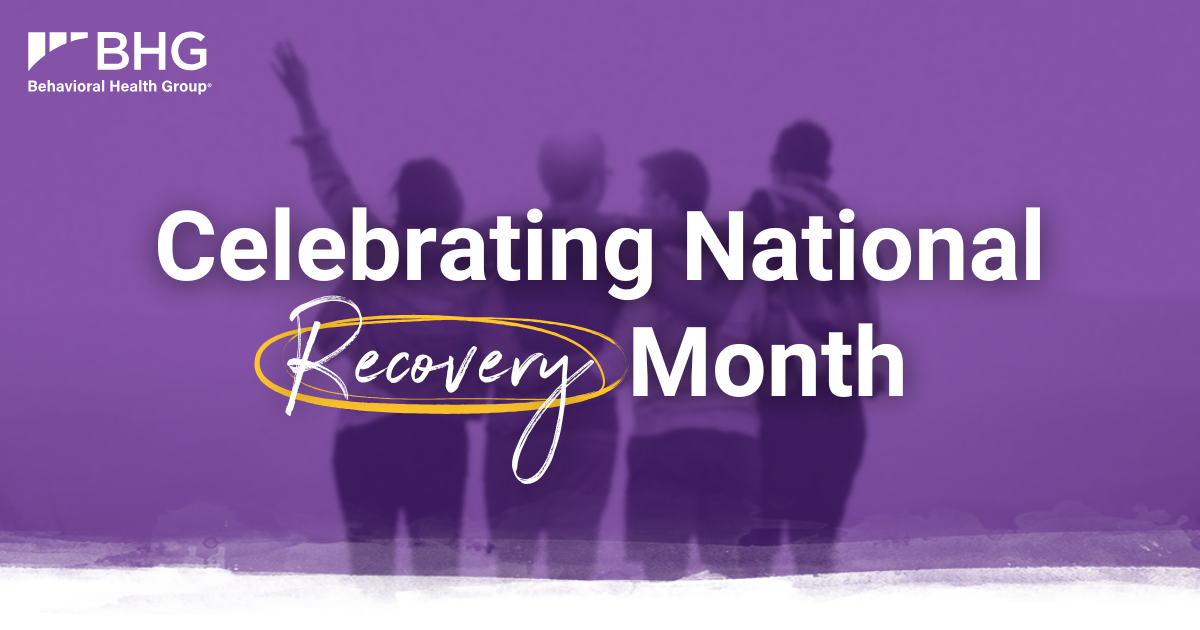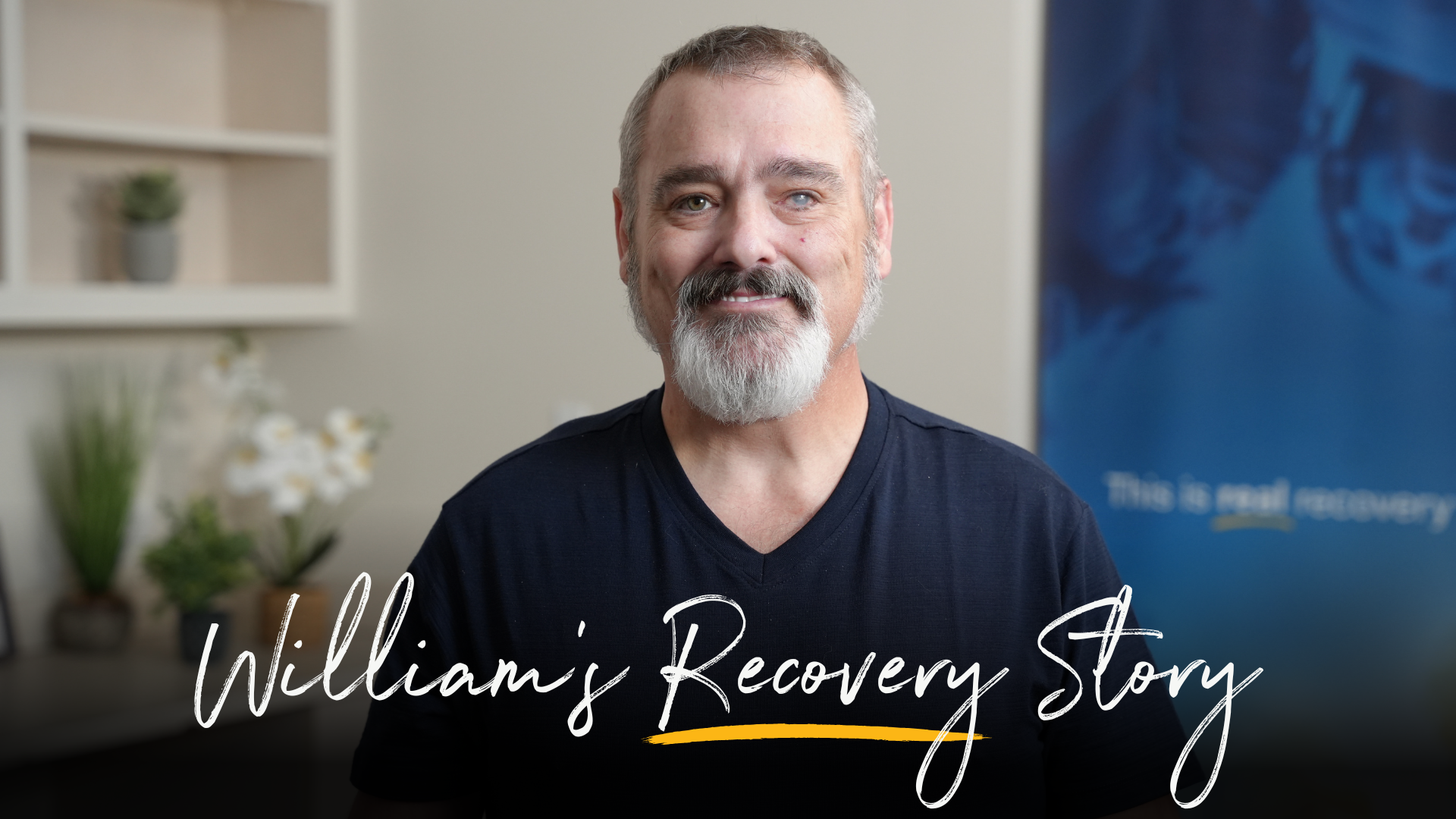
Recovery from opioid addiction and other behavioral health challenges can be tough – but it is possible, and it’s happening every day. Each year, millions of people take steps toward healthier, fuller lives. National Recovery Month is a time to celebrate these journeys of hope and healing. From powerful stories of people overcoming addiction to the vital role of families, communities and treatment providers, this month asks us to celebrate progress, raise awareness, fight stigma and show that treatment works.
As we come together to listen, encourage and support those still struggling, Recovery Month reminds us that recovery is real and help is available.
What is National Recovery Month?
Every September, communities across the country take part in National Recovery Month, which started in 1989 by the Substance Abuse and Mental Health Services Administration (SAMHSA). The goal is to build awareness about substance use disorders (SUDs), mental health conditions and recovery, while celebrating the millions of people who are living proof that recovery is possible.
Over time, Recovery Month has become a national platform for education and advocacy. It reminds us that addiction is a disease, not a moral failing, and that with treatment and support, people can and do recover. The observance also highlights the importance of prevention, evidence-based care and recovery support services – all of which are vital in the fight against substance use disorder and related challenges.

The Importance of National Recovery Month
National Recovery Month plays a key role in building understanding, support and awareness about SUDs and mental health challenges. Here are two important reasons why this observance matters:
Raising Awareness
Addressing addiction and mental health concerns starts with breaking down stigma and misinformation. Recovery Month gives us a chance to share facts: addiction is treatable, recovery is possible and treatment works. By increasing awareness, we can create a more supportive and informed society – one where people feel safe to seek help without fear of judgement.
Supporting the Recovery Journey
A central focus of Recovery Month is recognizing and supporting individuals on their path to recovery. By celebrating the successes of those who have faced challenges with substances like opioids (fentanyl, oxycodone, heroin, morphine, etc.), alcohol and other use disorders, we inspire others to take their first steps toward healing. When families, communities and healthcare providers encourage people in recovery, it gives them the support needed to succeed long term. National Recovery Month highlights how these networks provide the resources and support needed for lasting change.
 Celebrating Recovery Successes
Celebrating Recovery Successes
Recovery Month is not only about raising awareness – it’s about celebrating the real progress happening every day. Both statistics and personal stories show the impact of treatment and the hope that recovery brings. By looking at data and lived experiences, we can better understand the progress made and the possibilities ahead.
Recovery Statistics
Numbers help demonstrate the power of treatment and recovery support. At Behavioral Health Group (BHG), we’re proud to share outcomes that highlight the success of our programs and inspire confidence in the fight against opioid addiction:
BHG Recovery Outcomes
- BHG is among the 4.2% of treatment providers nationwid that offer patients access to all three FDA-approved medications for opioid use disorder (MOUD) - methadone, buprenorphine (Suboxone) and naltrexone. This approach to care helps us meet people where they are in recovery.
- 92% of patients report an improved quality of life.
- 83% of patients experience a decrease in substance use.
- Of patients who were unemployed at the time of admission, nearly 46% of them were either employed or in school at their 1-year assessment.
- Of patients who had an ER visit or called 911 in the 90 days before their admission, nearly 83% of them had not been to the ER or called 911 in the 90 days prior to their 1-year reassessment.
Statistics gathered from internal BHG data and patient surveys.
National Statistics
- According to the Substance Abuse and Mental Health Services Administration (SAMHSA), 50.2 million Americans consider themselves to be in recovery from their substance use and/or mental health problems.
- A 2021 study found 1.18 million adults had recovered from opioid addiction.
- Another study showed that nearly 260,000 people recovered from opioid use in just one year.
- A 2020 study of patients on long-acting buprenorphine found that over 50% stayed opioid-free for 12 months.
- A 2022 CDC report found that 3.7% of U.S. adults needed opioid use disorder treatment, but only 1 in 4 received medications, despite strong evidence that these treatments reduce overdose risk.
Patient Stories
While numbers show progress, the heart of recovery is best understood through the voices of people who’ve lived it. At BHG, patients like William have shared their journeys with honesty and courage. Their experiences remind us that recovery is possible and that no one is alone in the process.
How to Get Involved in National Recovery Month
National Recovery Month is a chance for everyone to play a role in building hope and reducing stigma around addiction. Whether through events, advocacy or personal support, your actions can make a real difference. Here are some ways to get involved:
- Join community events: Take part in or host events such as candlelight vigils, recovery walks, substance-free parties, festivals or online discussions. These gatherings spread awareness and celebrate recovery.
- Support someone in recovery: Be a listening ear, celebrate milestones or encourage treatment when needed. Small acts of kindness and support go a long way.
- Advocate for change: Contact local officials to support policies that protect and expand access to care and recovery services. Stand up for funding that helps people living with opioid addiction get the treatment they need.

Turn to BHG for Recovery Support
National Recovery Month highlights the strength and resilience of people on the path to recovery. At BHG, we walk alongside patients and families, providing personalized care for opioid addiction and behavioral health challenges.
Our approach combines FDA-approved medications, counseling and recovery support tailored to each patient. This whole-person model not only reduces the risk of opioids like fentanyl, oxycodone, heroin, morphine and codeine but also helps people rebuild healthier, more fulfilling lives.
As we observe National Recovery Month, we invite you to take that first important first step if you or someone you know needs help. Don’t wait. Call 844-535-7291 or find a BHG location near you to begin your journey to recovery.
For healthcare providers or referral partners: If you have a patient or client who could benefit from evidence-based treatment, BHG welcomes referrals. Call our 24/7 referral line at 866-763-2244 or submit an online referral form on our website. Together, we can connect people to the care and support they need for lasting recovery.
Reviewed by the BHG Clinical Team
This content has been reviewed by Behavioral Health Group’s clinical team to ensure medical accuracy, alignment with evidence-based practices and consistency with our mission of providing compassionate, effective care for individuals facing substance use disorder.

